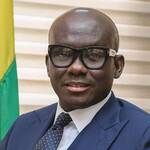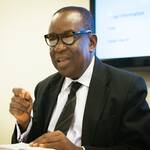At the annual conference of the Association of Magistrates and Judges of Ghana (AMJG), tensions flared as Chief Justice Gertrude Torkornoo and Attorney General and Minister of Justice, Godfred Yeboah Dame, engaged in a public disagreement over the delays in prosecuting illegal mining, or “galamsey,” cases.
The two officials traded accusations, each attributing the responsibility for the slow pace of prosecution to different parts of the justice system.
While the Attorney General pointed fingers at the judiciary, the Chief Justice insisted that prosecutors, not judges, were to blame.
Speaking at the conference, Mr. Dame expressed his dissatisfaction with how long illegal mining cases have remained unresolved.
He lamented that the slow pace of prosecution is undermining Ghana’s fight against galamsey, which has caused significant damage to the country’s forests and water bodies.
“One persistent criticism of our justice system is the slow pace at which cases are resolved. This is particularly concerning in illegal mining cases, which have devastating effects on our environment,” Mr. Dame said.
He emphasized that although Ghana’s 2019 amendment to the Minerals and Mining Act introduced severe penalties—15 years imprisonment for Ghanaians and 20 years for non-Ghanaians—the deterrent effect of the law has been diminished by the prolonged prosecution process.
“There are currently over 140 illegal mining cases involving more than 850 accused persons pending in courts across the Western, Eastern, Ashanti, Greater Accra, and Upper East regions. Some of these cases have been pending since 2020.
This is unacceptable in a time of national crisis,” he added.
The Attorney General urged judges handling these cases to wrap up trials swiftly, calling for a resolution within a month of the new legal year starting on October 10, 2024.
He stressed that speeding up the prosecution of galamsey cases would not only bring justice but also help curb further illegal mining activities.
In a sharp rebuttal, Chief Justice Torkornoo disagreed with Mr. Dame’s assessment.
She clarified that the judiciary was not the cause of delays in galamsey prosecutions, placing the blame instead on prosecutors.
She explained that while judges oversee trials, they are reliant on the timely and thorough work of prosecutors to move cases forward.
Without properly prepared cases from prosecutors, the judiciary’s ability to expedite trials is limited.
The Chief Justice’s remarks pointed to a deeper issue of coordination within Ghana’s legal system, with both sides needing to work efficiently to ensure justice is served in galamsey cases.
The exchange between the Chief Justice and the Attorney General highlights the ongoing challenges facing Ghana’s legal system in the fight against illegal mining.
With over 140 galamsey cases still unresolved, the nation’s efforts to protect its environment remain hampered by the slow delivery of justice.
As the legal year approaches, both the judiciary and the Attorney General’s office face mounting pressure to resolve these cases swiftly and demonstrate that the law can be an effective tool in curbing illegal mining.
With national attention focused on this critical issue, it remains to be seen how the two legal powerhouses will work together—or continue to clash—in addressing one of Ghana’s most pressing environmental crises.




